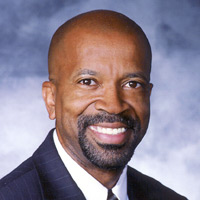Faced with a local transportation system that is rapidly deteriorating, Milwaukee County Executive Scott Walker recently took a bold step toward regional cooperation in the hopes of finding a solution. He invited government leaders from Waukesha, Racine and Kenosha to engage in a meaningful discussion about whether or not the Regional Transportation Authority could run the County's bus system.
My hope is that the county executive will find the best transportation solution for the residents of Milwaukee, and I commend him for his open acceptance of the fact that the County is likely not in a position to provide that best solution.
Whether or not the RTA is in a better position to solve our transportation crisis remains to be seen. In actuality, the group of leaders that County Executive Walker has assembled is not an official RTA body, per se, because it includes Waukesha County. Currently, the RTA that Gov. Doyle initiated for the Kenosha-Racine-Milwaukee rail proposal includes only those three counties.
The decision by Walker to offer Waukesha a seat at the transportation table is cause for both concern and optimism. It is a cause for concern because the majority of Milwaukee County bus users reside in the central city of Milwaukee (as well as the 15th Aldermanic District that I represent); the addition of Waukesha to the decision-making process could potentially push that focus even farther away from those who rely most on public transportation.
However, the inclusion of Waukesha is also cause for optimism. For far too long, Milwaukee and Waukesha have behaved like rival siblings. The elder Milwaukee has too often condescended to the upstart Waukesha, and the latter has too often dismissed the former as obsolete.
The truth is that Waukesha and Milwaukee need one another. Along with Racine and Kenosha, we make up a formidable body with limitless potential. No one can deny that economic growth has occurred in Waukesha, but it is equally undeniable that Milwaukee has contributed to the entire region as an economic leader. By the same token, the natural beauty of Waukesha's landscape and resources are obvious -- but just as obvious are the majesty of Lake Michigan and the benefit of Milwaukee's higher education, as well as the attraction of its cultural arts.
Transportation is really about connecting individuals to opportunity. We can only be successful if each party takes hold of the fact that Milwaukee and its surrounding neighbors all offer significant opportunities that deserve access. Waukesha residents want to be able to quickly and comfortably access the city's professional sports, corporate employment, world-class arts and other benefits; Milwaukee residents want to contribute to Waukesha's emerging economy and experience its natural brilliance.
The time has come for all of us in the region to value one another's distinct offerings, and -- more importantly -- to value what Milwaukee, Waukesha, Racine and Kenosha can accomplish together. Transportation is perhaps the first test for this assembled body. Like any body, we will get nowhere if we waste time bickering about who is the "eye" and who is the "foot." However, if we see ourselves as one body, with a unified purpose, we all win.
We must come to terms with our own identities, but we must also have a vision for a collective identity that will open up new roads of opportunity. Together, we must focus on the transportation possibilities that will make us a stronger region for all.
Willie L. Hines, Jr. is president of the Milwaukee Common Council and alderman for the 15th District. As one of 10 children, he grew up in public housing. Today, he chairs the Milwaukee Housing Authority and serves in several other leadership capacities around the city. He is an alumnus of Rufus King High School and Marquette University, where he was a scholar-athlete on the university's Division I basketball team.
He is married with two children.


